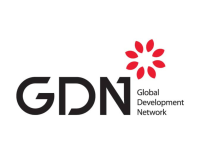The Keta Lagoon Complex Ramsar Site (KLCRS) Biodiversity and Livelihood Projects aimed at improving understanding of biodiversity changes within the study area for mainstreaming of
biodiversity in the context of Ramsar sites. The projects are important not only in quantifying the biodiversity loss, but also contribute to knowledge on the drivers of this loss and its socio-economic impact, as well as improving the understanding of local communities on the connection between biodiversity and livelihoods through biodiversity mainstreaming.
Project I – Assessment of Ecosystem-Based Livelihoods on Biodiversity of the Keta Lagoon Complex Ramsar Site (KLCRS) in Ghana
This project aimed to investigate the effects of ecosystem-based livelihoods on biodiversity within the KCLRS. Specifically, the project addressed the following objectives:
- Document the ecosystem-based livelihoods activities in the KLCRS.
- Identify the pressures that result from these livelihood activities.
- Collate inventory of critical flora and fauna (biodiversity) of the KLCRS.
- Establish the relationship between the ecosystem-based livelihoods and biodiversity changes.
- Identify measures to achieve a balance between livelihood activities and biodiversity
Project II - Assessing the Role of Different Types of Knowledge for Mainstreaming Biodiversity Conservation in Ramsar Sites in Fiji and Ghana
This project sought to evaluate, assess and compare the role of different sources of knowledge for biodiversity mainstreaming in the conservation of Ramsar sites in Fiji and Ghana. The specific objectives were to:
- Document the main sources of knowledge available to stakeholders on biodiversity conservation.
- Identify the gaps in communicating biodiversity issues.
- Determine a suitable medium for improving knowledge communication on biodiversity mainstreaming.
- To develop a communication framework for mainstreaming biodiversity conservation in Ramsar sites in the two countries.
Together, the two projects organized various dissemination activities to communicate project
findings to local communities and into national policy.
- Community Engagement on Protecting Biodiversity in Keta Lagoon Complex Ramsar Site (https://acecor.ucc.edu.gh/community-engagement-protecting biodiversity-keta-lagoon-complex-ramsar-site)
- Engagement of students of Anlo Senior High School and communities on research findings from the Keta Lagoon Complex Ramsar Site (https://www.malnetproject.com/students-anloga-senior-high-school-engaged research-findings-keta-lagoon-complex-ramsar-site)
- Workshop to facilitate biodiversity mainstreaming in the Keta Lagoon Complex Ramsar Site into District Medium-Term Development Plan 2022 – 2025. Centre for Coastal Management, University of Cape Coast, Ghana (https://acecor.ucc.edu.gh/media-centre/event/ccm-and-ndpc-organize-3-day-workshop-klcrs-biodiversity-and-livelihood)
Publications
Mattah, P. A. D., Akwetey, M. F. A., Abrokwah, S., Prah, P., Tuffour, D. K., Aheto, D. W., &
Subramanian, S. (2024). Perspectives on drivers of biodiversity and environmental changes in the Keta Lagoon Ramsar Site of Ghana. Sustainability, 16, 666. https://doi.org/10.3390/su16020666
Theses
The project provided partial funding for two postgraduate students at the Department of Fisheries and Aquatic Sciences, University of Cape Coast under the ACECoR scholarship programme.
- Assessment of Benthic Macroinvertebrates Biodiversity within the Keta Lagoon Complex Ramsar Site
- Assessing the Sustainability of Wetland-Based Livelihoods in the Keta Lagoon Complex Ramsar Site (KLCRS) of Volta Region in Ghana






